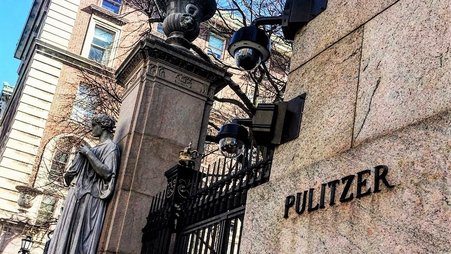
Justice Clarence Thomas continues to push for the Supreme Court to overturn vital protections against retaliatory defamation lawsuits by public officials. But he appears increasingly isolated in light of conservative opposition.
Over the last few years — and especially this year — there’s been significant concern that vital legal protections keeping the powerful from silencing critics with defamation claims would be weakened by politicians or eliminated altogether by the Supreme Court.
Those concerns remain, but efforts to undermine long-standing First Amendment safeguards suffered major setbacks last week. The Supreme Court reaffirmed the continued viability of New York Times v. Sullivan, the landmark 1964 case disallowing public officials from retaliating against journalists and others with lawsuits over unintentional errors.
The court in Counterman v. Colorado explained that:
“A public figure cannot recover for the injury [a defamatory] statement causes unless the speaker acted with ‘knowledge that it was false or with reckless disregard of whether it was false or not.’ That rule is based on fear of ‘self-censorship’ — the worry that … the uncertainties and expense of litigation will deter speakers from making even truthful statements. The First Amendment, we have concluded, ‘requires that we protect some falsehood in order to protect speech that matters.’”
The Counterman case itself was not about defamation — rather, it involved a Colorado statute criminalizing threatening statements — but it would be odd for the court to analogize to Sullivan as a model for First Amendment analyses if it had any intention of overturning the case. No one except Justice Clarence Thomas dissented from the endorsement of Sullivan.
Driving the point home, the Supreme Court also declined a request to review a direct challenge to Sullivan in another case, which sought to hold the Southern Poverty Law Center liable for including certain organizations on its list of hate groups. Again, only Thomas dissented.
Previously, several Supreme Court justices appeared open to reconsidering Sullivan, but now Thomas seems to be alone, as he should be. His efforts to overhaul First Amendment law to make it easier for public officials to retaliate against journalists appear increasingly self-serving, considering journalists’ revelations of his myriad of undisclosed conflicts of interest.
Other recent attacks on Sullivan have also failed. Earlier this year, Florida governor and presidential hopeful Ron DeSantis had his minions in the state legislature introduce legislation intended to undermine Sullivan (among other gifts to powerful defamation plaintiffs). That bill died after a major backlash from conservative media outlets, both in Florida and nationwide, and prominent Republicans including everyone from Mike Pence to Bill Barr.
This is not to say that the attacks on Sullivan are over. Thomas remains committed to his position. DeSantis, whether as governor or potentially president, is sure to continue to undermine the press, and the First Amendment as a whole, in any way he can.
But last week’s cases show that the Supreme Court is unlikely, at least in the near term, to rewrite defamation law to bankrupt already struggling media outlets with legal costs. And the fiasco in Florida shows DeSantis underestimated his base when he assumed an attack on the “liberal media” would be taken as red meat. He apparently didn’t think his supporters would figure out that Sullivan protects conservative media as well.
Going forward, the focus should be on providing more protection against frivolous defamation suits — for example, by adopting anti-SLAPP laws. That said, the newly reaffirmed bipartisan consensus that Sullivan should remain the law of the land provides all the more reason why Congress should pass legislation to codify it and stop future attacks before they start.




